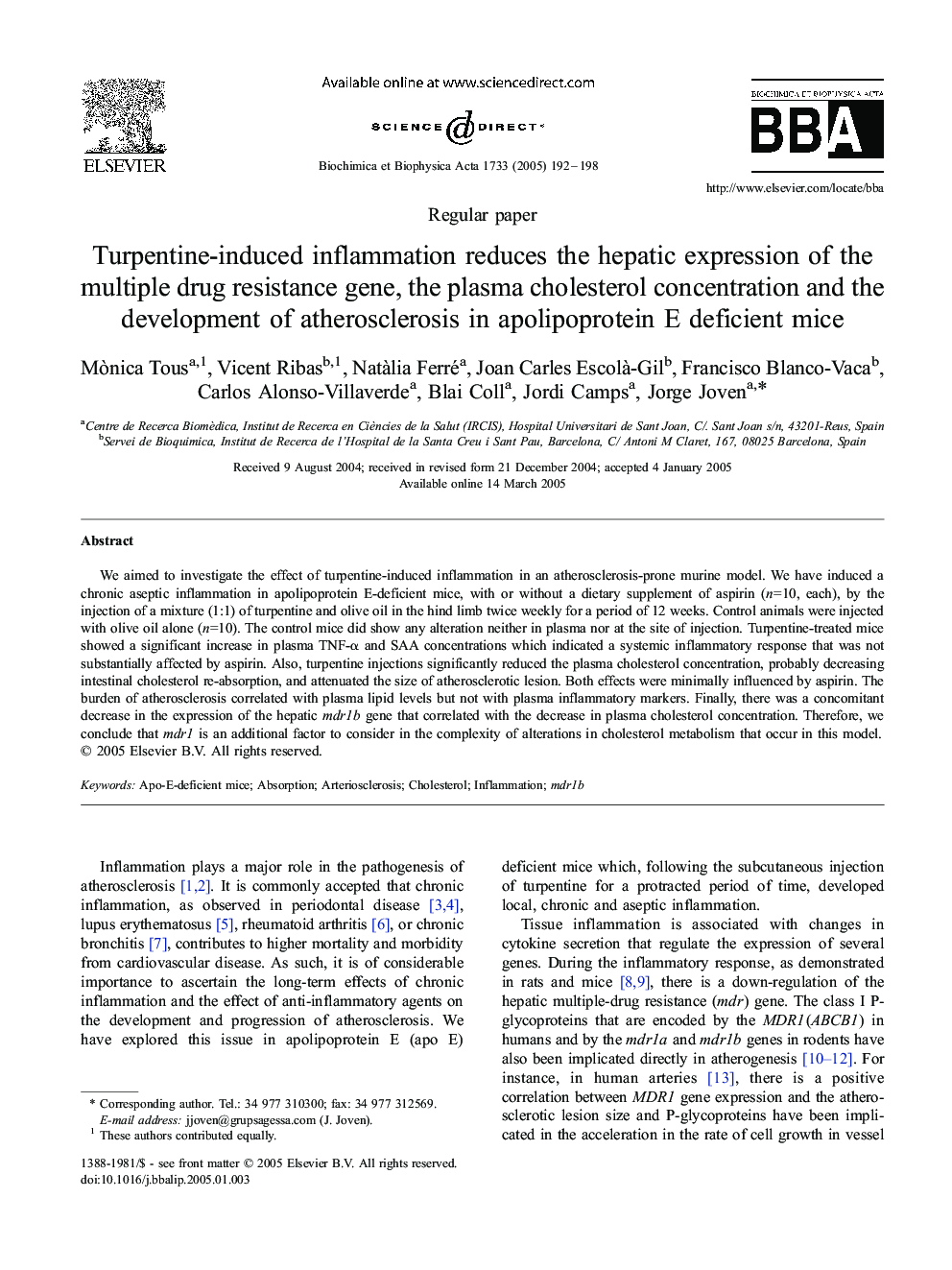| Article ID | Journal | Published Year | Pages | File Type |
|---|---|---|---|---|
| 9886595 | Biochimica et Biophysica Acta (BBA) - Molecular and Cell Biology of Lipids | 2005 | 7 Pages |
Abstract
We aimed to investigate the effect of turpentine-induced inflammation in an atherosclerosis-prone murine model. We have induced a chronic aseptic inflammation in apolipoprotein E-deficient mice, with or without a dietary supplement of aspirin (n=10, each), by the injection of a mixture (1:1) of turpentine and olive oil in the hind limb twice weekly for a period of 12 weeks. Control animals were injected with olive oil alone (n=10). The control mice did show any alteration neither in plasma nor at the site of injection. Turpentine-treated mice showed a significant increase in plasma TNF-α and SAA concentrations which indicated a systemic inflammatory response that was not substantially affected by aspirin. Also, turpentine injections significantly reduced the plasma cholesterol concentration, probably decreasing intestinal cholesterol re-absorption, and attenuated the size of atherosclerotic lesion. Both effects were minimally influenced by aspirin. The burden of atherosclerosis correlated with plasma lipid levels but not with plasma inflammatory markers. Finally, there was a concomitant decrease in the expression of the hepatic mdr1b gene that correlated with the decrease in plasma cholesterol concentration. Therefore, we conclude that mdr1 is an additional factor to consider in the complexity of alterations in cholesterol metabolism that occur in this model.
Related Topics
Life Sciences
Biochemistry, Genetics and Molecular Biology
Biochemistry
Authors
Mònica Tous, Vicent Ribas, Natà lia Ferré, Joan Carles Escolà -Gil, Francisco Blanco-Vaca, Carlos Alonso-Villaverde, Blai Coll, Jordi Camps, Jorge Joven,
